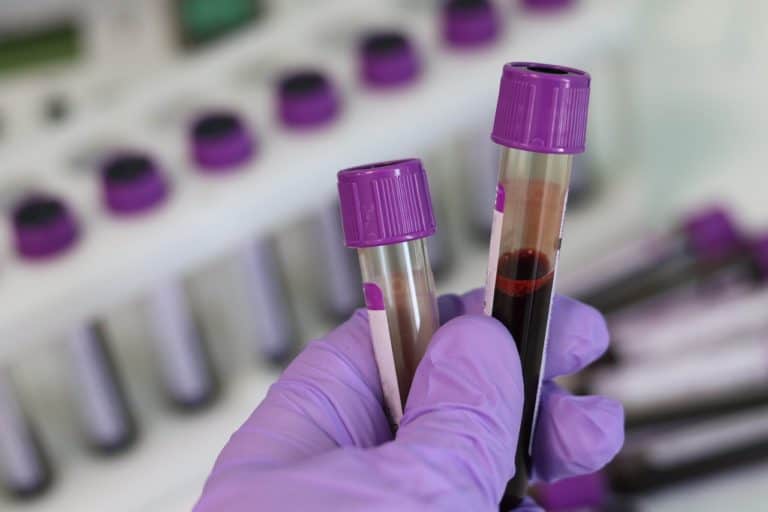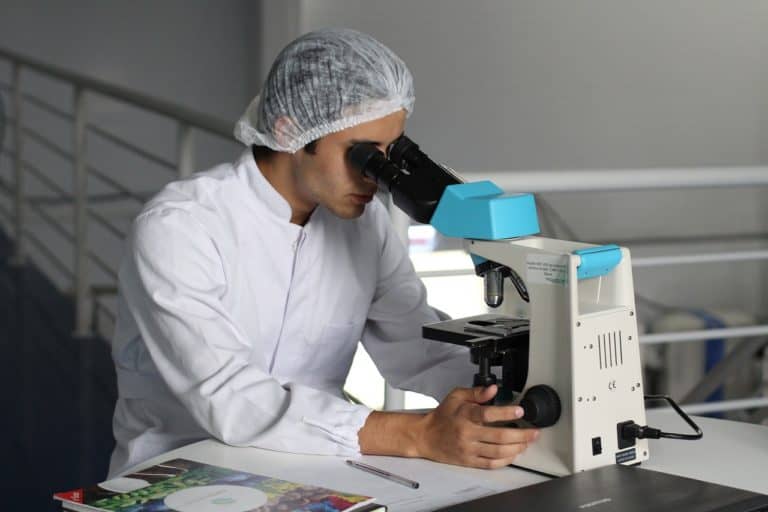It’s common knowledge that calcium is necessary for the development and maintenance of healthy bone and teeth, but there’s such a thing as too much of a good thing, and that applies to calcium. In fact, when it comes to calcium and calcium supplements, as well as dairy foods, men should be especially careful of how much they consume if they want to reduce their risk of prostate cancer.
Benefits of calcium for men
Calcium is the most abundant mineral in the body, and it also is available for the body in several forms; that is, in foods, in supplements, and in some medications, such as antacids. In addition to supporting and promoting bone and teeth health, calcium is also necessary for vascular contraction, muscle function, transmission of nerve signals, and secretion of hormones.
The Food and Nutrition Board at the Institute of Medicine has established that adult males require 1,000 mg daily of calcium daily from ages 19 to 70, and 1,200 mg thereafter. These Recommended Dietary Allowance (RDA) amounts are considered sufficient to meet the nutrient requirements of 97% to 98% of healthy individuals.
What’s the link between calcium and prostate cancer
On the downside of calcium, there is an increased risk of prostate cancer. In fact, the World Cancer Research Fund classified calcium as a probable cause of prostate cancer. This classification came after a number of studies revealed a possible association between taking calcium and the development of prostate cancer in different populations of men. The following studies are only a representative sample of those that have found an association between calcium intake and prostate cancer risk.
- One study looked at intake of dietary calcium and the vitamin D receptor (VDR) in a group of 533 African American men with prostate cancer and a control group of 250 African American men without cancer. Vitamin D receptor has a role in the absorption of calcium. There are two variants of the gene, and one of them results in a lower absorption rate of calcium. Men who had the highest calcium intake had twice the risk of prostate cancer than did those in the lowest. Men who had the VDR gene with the poor absorption had half the risk of developing prostate cancer. The author concluded that their findings “suggest a link between prostate cancer risk and high intestinal absorption of calcium.” (Rowland)
- At Colorado State University, a team of researchers evaluated data from 27,293 Chinese men aged 45 to 74 and who participated in the Singapore Chinese Health Study and who ate only small amounts of dairy foods. A total of 298 men were diagnosed with prostate cancer. Analysis of the diets of the men with prostate cancer revealed that compared with men without prostate cancer, there was a 25% increased risk of prostate cancer among men who consumed an average of 659 mg of calcium versus only 211 mg among the non-cancer group. The majority of the calcium came from vegetables (19.3%), dairy foods (17.3%), and grains (14.7%). Results of the study suggest that even non-dairy calcium sources can increase the risk of prostate cancer. (Butler)
- The European Prospective Investigation into Cancer and Nutrition study included 142,251 men, whose dietary habits were examined, especially their consumption of animal foods, protein, and calcium. After an average of 8.7 years of follow-up, 2,727 men had been diagnosed with prostate cancer: 1,131 with localized disease and 541 with advanced stage prostate cancer. An analysis of the dietary data indicated that calcium from dairy foods (but not other foods) and high intake of dairy protein were both associated with an increased risk of prostate cancer. The authors concluded that their results supported the hypothesis “that a high intake of protein or calcium from dairy products may increase the risk for prostate cancer.” (Allen)
- A National Cancer Institute study in 2007 examined the association between consuming dairy products and calcium and the risk of prostate cancer in 29,509 men. Analysis of the results showed that greater intake of dairy foods, especially low-fat dairy products, was weakly associated with an increased risk of prostate cancer. When it came to calcium, while greater dietary calcium intake was associated with an increased risk of prostate cancer, greater use of calcium supplements was not. The investigators also did not see an association between intake of dairy products and dietary calcium and aggressive prostate cancer. (Ahn)
- In another study, researchers looked at the effect of calcium and dairy foods on the risk of prostate cancer among 293,888 men who were followed up for six years. Although the authors did not find an association between total and supplemental calcium intake and all prostate cancer and nonadvanced prostate cancer, they did observe a relationship between total calcium and advanced and fatal prostate cancer. The only dairy food associated with an increased risk of advanced prostate cancer was skim milk, while calcium from non-dairy foods was associated with a lower risk of nonadvanced prostate cancer. (Park)
- Investigators followed a total of 20,885 US physicians for 11 years in a Harvard School of Public Health study to evaluate the association between calcium intake and prostate cancer. Among the 1,012 men who developed prostate cancer, those who averaged more than 600 mg calcium per day had a 32% greater risk of prostate cancer than those who consumed 150 mg or less. Keep in mind, however, that 150 mg daily is significantly lower than the recommended amount needed to maintain bone health. (Chan)
Calcium, vitamin D and prostate cancer
An interesting study published in the March 2012 issue of Anticancer Research revealed an association between calcium, vitamin D, and prostate cancer. Given that vitamin D deficiency is associated with an increased risk of prostate cancer and high dietary calcium intake is also associated with an increased risk of prostate cancer, the authors examined the effect of dietary vitamin D and calcium on the growth of prostate tumors in groups of mice who were given different amounts of calcium and vitamin D.
They found the highest tumor growth occurred in the group with normal calcium and deficient vitamin D. Growth of the prostate tumors in groups of mice given normal calcium/sufficient vitamin D, high calcium/sufficient vitamin D, and high calcium/deficient vitamin D did not differ significantly, but it was significantly lower than that in the normal calcium/vitamin D deficient group. The researchers concluded that dietary vitamin D has a preventive role in prostate cancer. (Ray)
Conflicting results of calcium studies
Not all the studies of calcium and prostate cancer indicate the mineral can lead to an increased risk of the disease. In a VA medical center study published in January 2012, investigators evaluated data from veterans at the Durham Veterans Affairs Medical Center, including 108 biopsy-positive prostate cancer cases, 161 biopsy-negative controls, and 237 healthy controls. An analysis of calcium intake from food for all the participants showed that total calcium intake was associated with a lower risk of prostate cancer among all races when biopsy-negative controls and cases and healthy controls were considered. Intake of the highest amount of calcium from food was associated with a lower risk for high-grade prostate cancer compared with high-grade cases and biopsy-negative controls, high-grade cases, and healthy controls. The reviewers concluded that calcium in the diet is associated with a lower risk of prostate cancer and a lower risk for high-grade prostate cancer. (Williams)
In a study from Vanderbilt University, investigators studied 98 men with high-grade and 100 men with low-grade prostate cancer, 133 who had prostate intraepithelial neoplasia (PIN), and 163 controls without cancer or PIN. The goal was to evaluate whether insufficient levels of magnesium, in relation to calcium, were a risk factor for prostate cancer. They found that serum magnesium levels were significantly lower while ratios of calcium and magnesium were significantly higher among men with high-grade cancer versus controls. Elevated magnesium was significantly associated with a lower risk of high-grade prostate cancer, while an elevated calcium/magnesium ratio was associated with an increased risk of high-grade prostate cancer.
However, the investigators did not see a significant association between blood calcium levels and prostate cancer or PIN. Calcium levels also were not associated with low-grade prostate cancer. The authors concluded that magnesium affects the risk of prostate cancer perhaps through its interaction with calcium. (Dai)
Do calcium supplements really help with bone health?
Some experts and a number of studies have questioned whether taking calcium supplements helps bone health or increases bone density. A surprisingly number of studies indicate that calcium supplements are not helpful for this purpose, which flies in the face of what the supplement makers and the dairy industry have to say about the matter. Here’s a representative example of what the studies show, starting with a recent study in July 2012.
- The Harvard Nurses’ Study evaluated 77,761 nurses for 12 years and looked at the relationship between dietary intake of calcium and bone fractures. They found that calcium supplements did not protect against fractures at any dose. In fact, nurse who had the highest intake of calcium had an increased risk of experiencing a bone fracture. (Freskanich)
- The results of the Harvard Nurses’ Study were confirmed in a subsequent study that included 400 elderly participants. Researchers found that calcium consumption during early adulthood increased the risk of bone fracture as people aged. (Cumming)
- A two-year study from the UK reveals that neither calcium nor vitamin D reduced the number of fractures experienced by women older than 70. (Grant)
If you’ve got milk, you’ve got trouble
While the dairy industry and its lobbyists have been touting the virtues of milk and dairy products for decades and making a profit, their benefits have been at the expense of the health of those who have bought into their rhetoric. Although there are many experts who argue against the so-called virtues of milk consumption, one voice has been especially persistent and scientific in presenting the dangers of cow’s milk products. Nutrition researcher and author Neal Barnard, MD, who is also president of the Physicians Committee for Responsible Medicine, notes that ever since 1992 when a study of 142 children with diabetes showed that all of the children had antibodies against a specific milk protein, he and his organization have been warning the public and health professionals about the harm lurking in cow’s milk.
Barnard’s efforts were soon thereafter supported by Benjamin Spock, MD, the renowned pediatrician who also warned about the dangers of giving milk to kids after more than 100 studies showed milk proteins could lead to diabetes in susceptible children. Since the 1990s, many more studies have pointed out the hazards associated with consuming milk and milk products, including the symptoms of lactose intolerance suffered by millions of people. Also among the hazards is the increased risk of prostate cancer, as it appears milk may change a man’s hormone balance and make cancer cells more likely to grow.
Is milk necessary for protecting bone health? Barnard points out that “It turns out that the studies the dairy industry has used to support a role for milk in bone health were improperly done. Many did not actually test milk at all, but instead used calcium supplements, which may have a better effect on bones.” He also noted that many studies also did not take into consideration the effect of the vitamin D in milk, which possesses bone-protecting abilities that have nothing to do with milk. Therefore while vitamin D is important for bone health, “milk may be little more than its vehicle–and not an especially good one at that,” explained Barnard. (Barnard)
How to improve bone health naturally
If you are interested in improving your bone health, here’s what you need to do.
- Get your calcium from food, not supplements. Include dark leafy green vegetables (e.g., bok choy, kale, spinach, collard greens, broccoli, Brussel sprouts), beans and legumes, calcium-enriched orange juice, calcium-fortified cereals, small fish such as sardines (with bones), and almonds in your diet. A limited amount of no-fat dairy (1-2 servings per week) can be included. Leafy greens are also rich in vitamin K, which helps regulate calcium levels.
- Take a vitamin D supplement. Vitamin D is essential for proper absorption of calcium. Without enough vitamin D, you cannot properly utilize your calcium. If possible, get at least 15 minutes of sun exposure 3 to 4 times per week to allow your body to make the vitamin D you need. When this is not possible, supplement with vitamin D. The amount of vitamin D you take will depend on whether you are deficient (as many people are), so you should have a vitamin D test prior to beginning supplementation.
- Exercise. Weight-bearing exercise and physical activity such as walking, jogging, and aerobics helps build and maintain bone health. When you exercise, muscles pull on your bones, which creates pressure and a trigger for your body to increase bone density.
Sources
Ahn J et al. Dairy products, calcium intake, and risk of prostate cancer in the prostate, lung, colorectal, and ovarian cancer screening trial. Cancer Epidemiology Biomarkers & Prevention 2007 Dec; 16(12): 2623-30
Allen NE et al. Animal foods, protein, calcium, and prostate cancer risk: the European Prospective Investigation into Cancer and Nutrition. British Journal of Cancer 2008 May 6; 98(9): 1574-81
Barnard N. Milk not necessarily good for you. Accessed July 30, 2012:
Bridget MK. USPSTF: taking vitamin D and calcium doesn’t prevent fractures in older women. JAMA 2012; 308(3): 225-26
Butler LM et al. Calcium intake increases the risk of prostate cancer among Singapore Chinese. Cancer Research 2010 Jun 15; 70(12): 4941-48
Chan JM et al. Dairy products, calcium, and prostate cancer risk in the Physicians’ Health Study. American Journal of Clinical Nutrition 2001 Oct; 74(4): 549-54
Cumming RG et al. Case-control study of risk factors for hip fractures in the elderly. American Journal of Epidemiology 1994 Mar 1; 139(5): 493-503
Dai Q et al. Blood magnesium, and the interaction with calcium, on the risk of high-grade prostate cancer. PLoS One 2011 Apr 25; 6(4): e18237
Feskanich D et al. Milk, dietary calcium, and bone fractures in women: a 12-year prospective study. American Journal of Public Health 1997 Jun; 87(6): 992-97
Grant AM et al. Calcium/vitamin D not effective for secondary prevention of fracture. Lancet 2005; 365: 1621-28
Park Y et al. Calcium, dairy foods, and risk of incident and fatal prostate cancer: the NIH-AARP Diet and Health Study. American Journal of Epidemiology 2007 Dec 1; 166(11): 1270-79
Ray R et al. Effect of dietary vitamin D and calcium on the growth of androgen-insensitive human prostate tumor in a murine model. Anticancer Research 2012 Mar; 32(3): 727-31
Rowland GW et al. Calcium intake and prostate cancer among African Americans: effect modification by vitamin D receptor calcium absorption genotype. Journal of Bone and Mineral Health 2011; DOI 10.1002/jbmr.505
Williams CD et al. Dietary calcium and risk for prostate cancer: a case-control study among US veterans. Preventing Chronic Disease 2012 Jan; 9:E39







